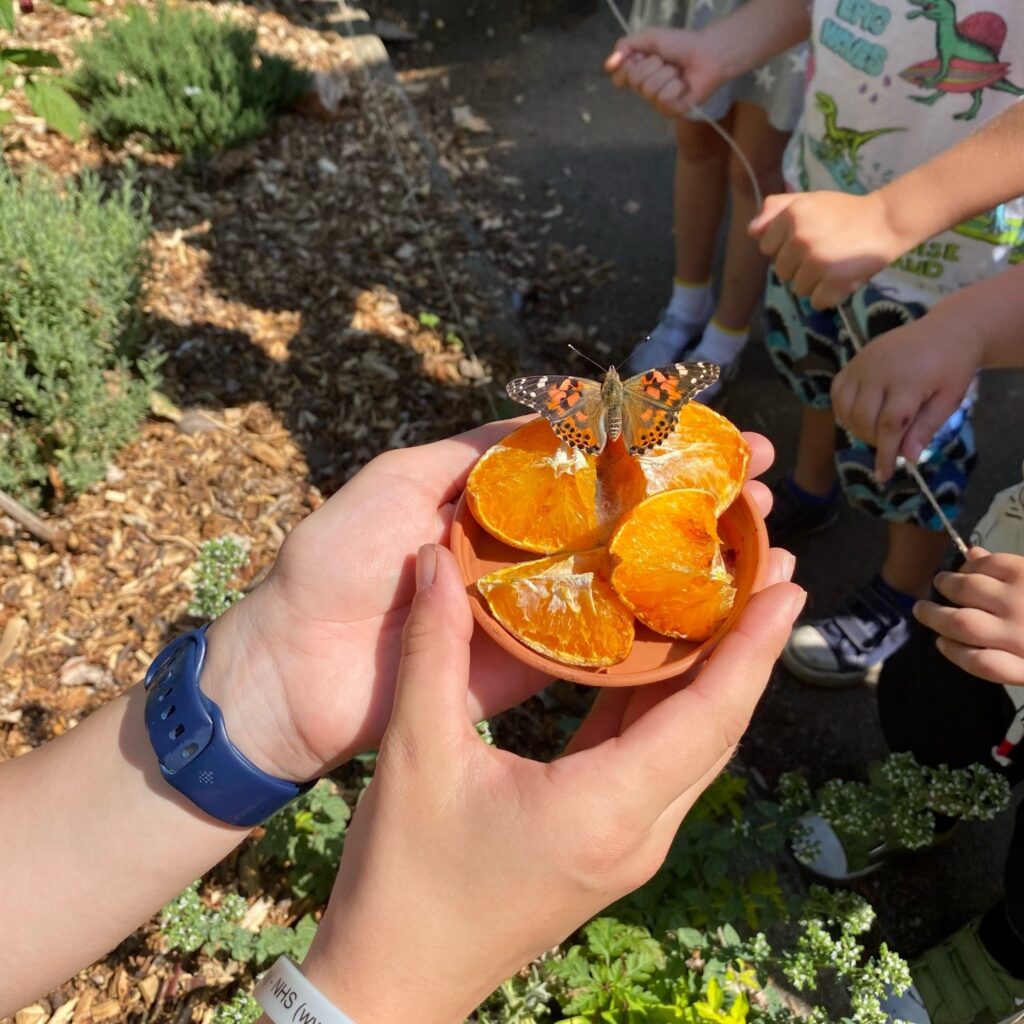Urban Green Newcastle was committed to enhancing the natural environment within Newcastle’s parks and allotments by increasing biodiversity, encouraging wildlife, and combating climate change. This influenced all aspects of the charity’s work – from reducing pesticide use, working with event organisers to minimise environmental impacts, and procuring more energy efficient machinery.
Urban Green Newcastle worked with a wide range of partners, volunteers, businesses, and community groups to deliver improvements and boost natural habitats across the city.
Tree Planting
Through grant funded projects and partnership working, Urban Green Newcastle planted more than 12,000 trees across the city between April 2019 and February 2025.
The charity planted two trees for every one removed, and also formed tree-planting partnerships with local businesses including Ringtons Plc and law firm Hay & Kilner. Urban Green Newcastle collaborated with the North East Community Forest (NECF), created a new ‘tiny forest’ in Westerhope Park with the Earthwatch Foundation, and established a Blossom Circle in Exhibition Park as part of the National Trust’s Blossom Together initiative.
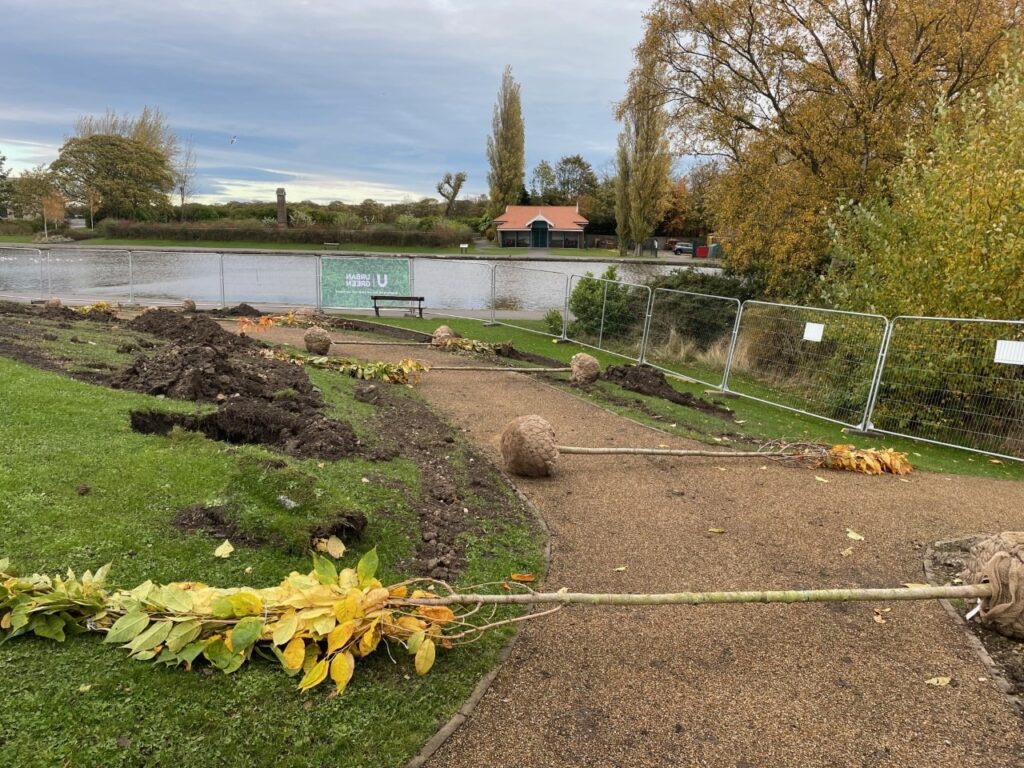
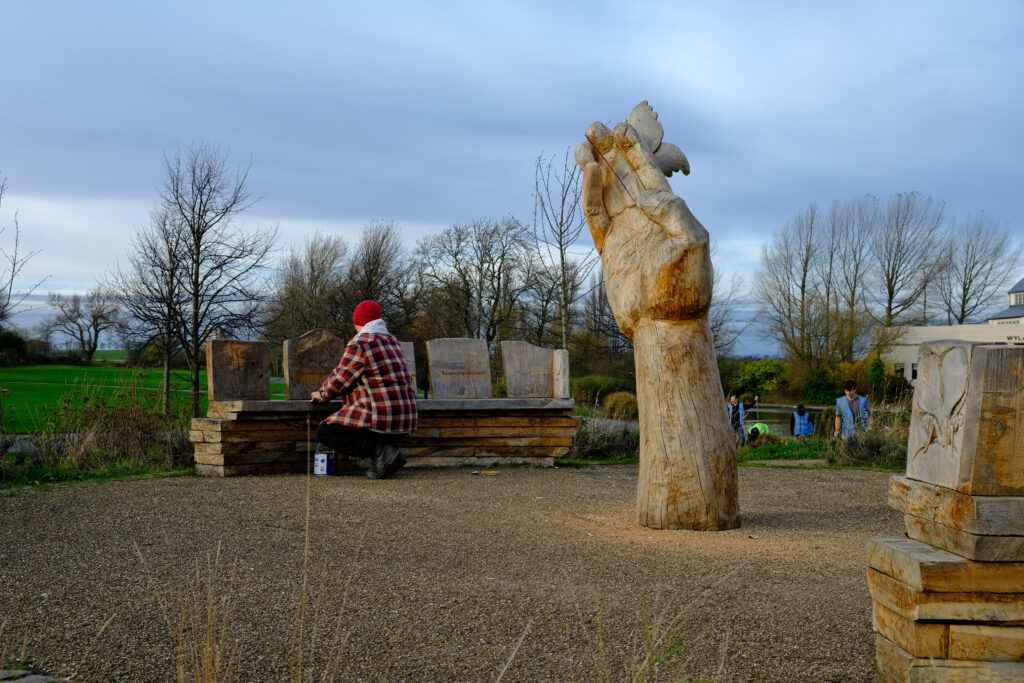
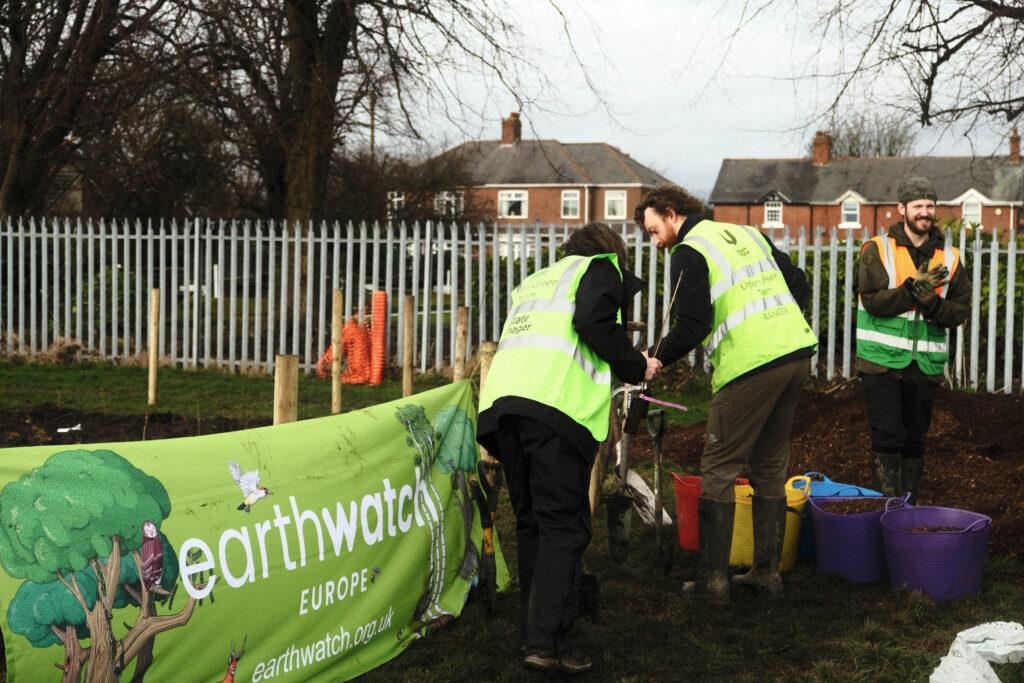
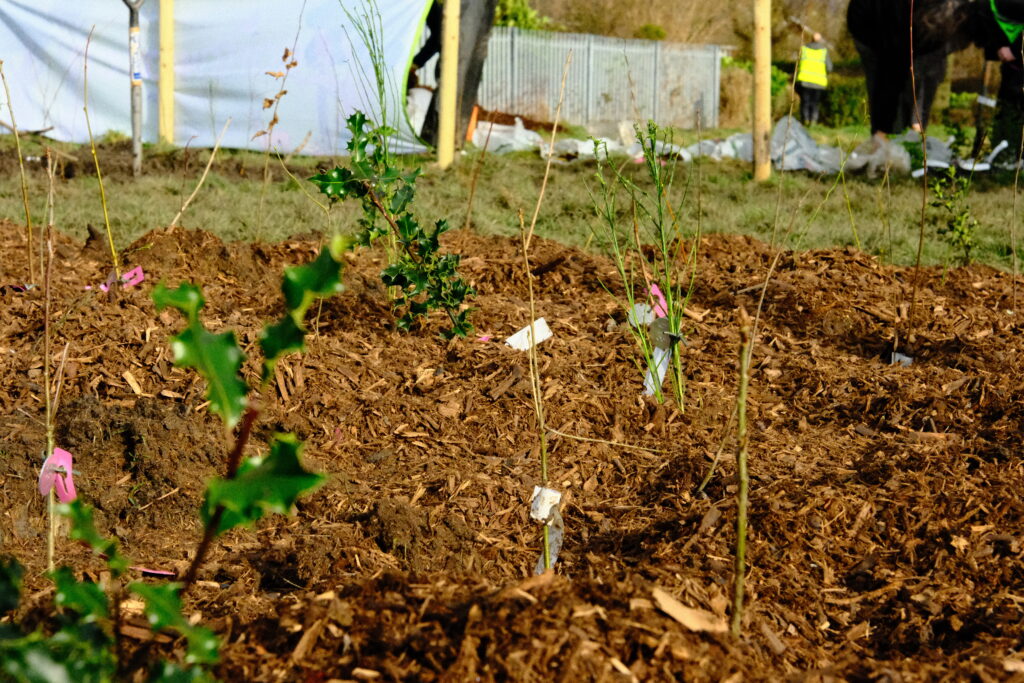
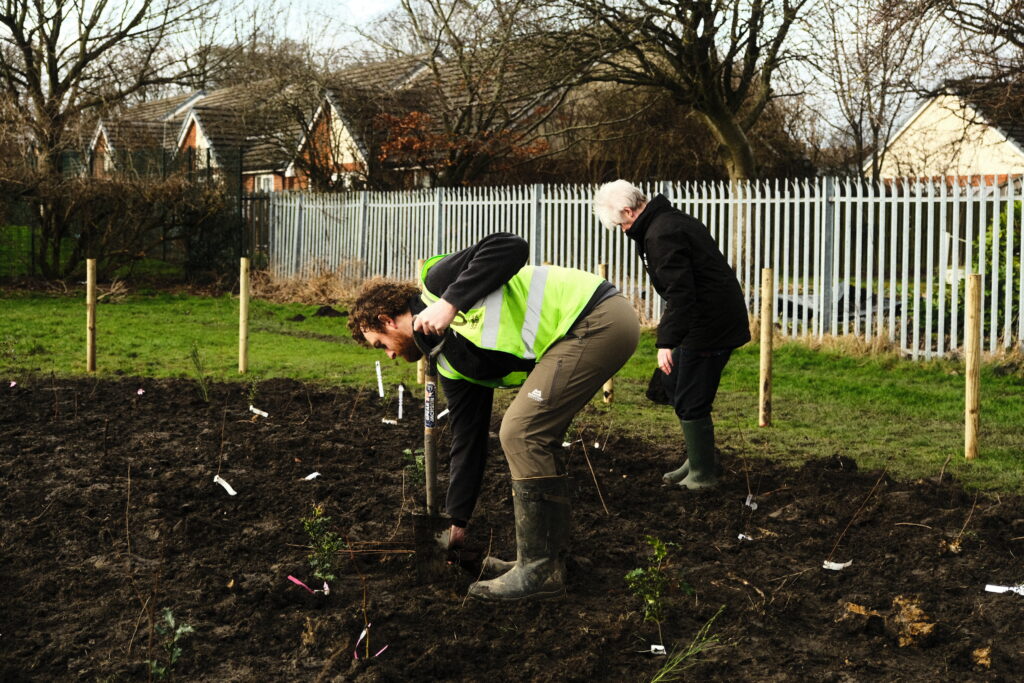
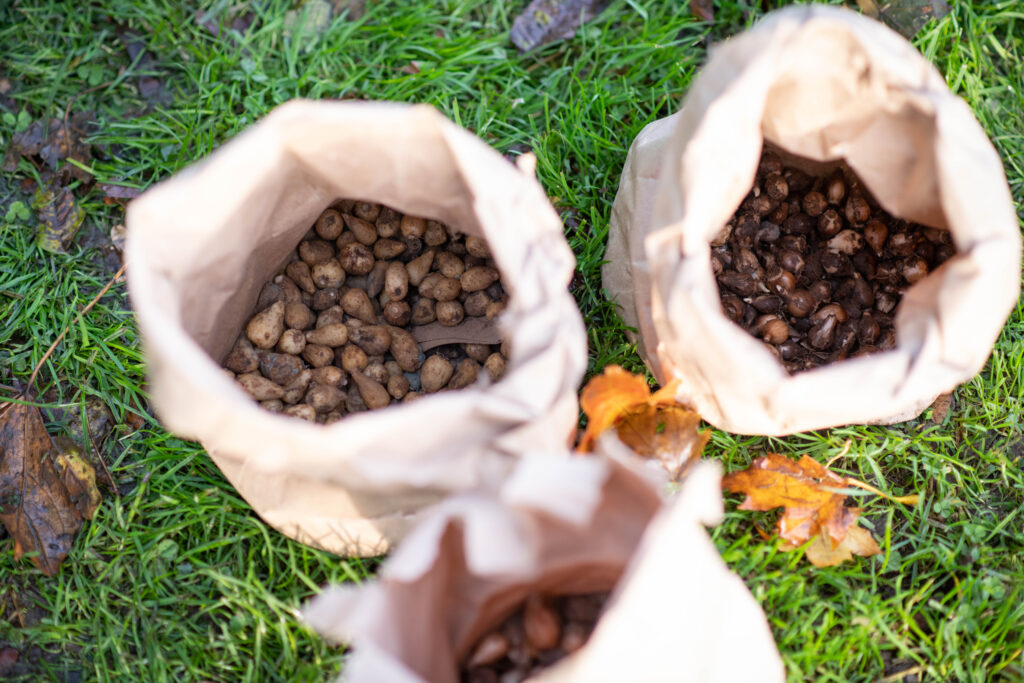
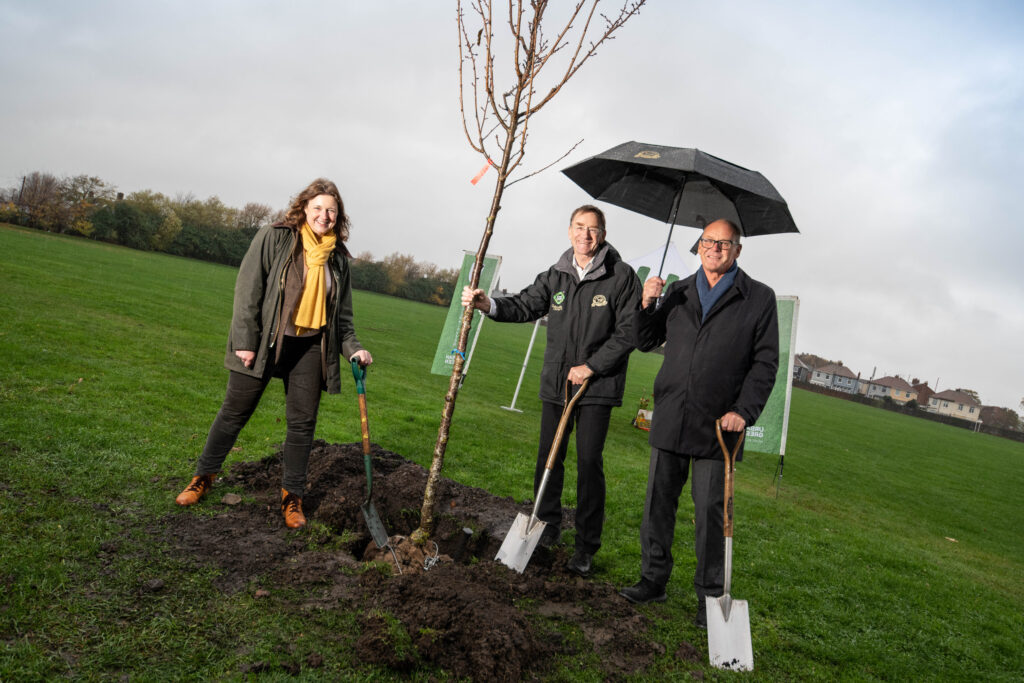
Nature and wildlife
Beelines North East
Beelines North East, which was funded by the Government’s Green Recovery Challenge Fund, saw a partnership with Northumberland Wildlife Trust deliver improvements for pollinators across all the city’s parks, including creating 18 hectares of nectar rich grassland, planting around 42,000 native bulbs and 3,700 native trees, and establishing 1,815 sqm of pollinator friendly borders.
The project supported young people by providing traineeships, volunteering, and schools work opportunities. The education and engagement programme saw 9,000 people enjoy events and education sessions, and a further 4,500 people took part in activities to explore nature.
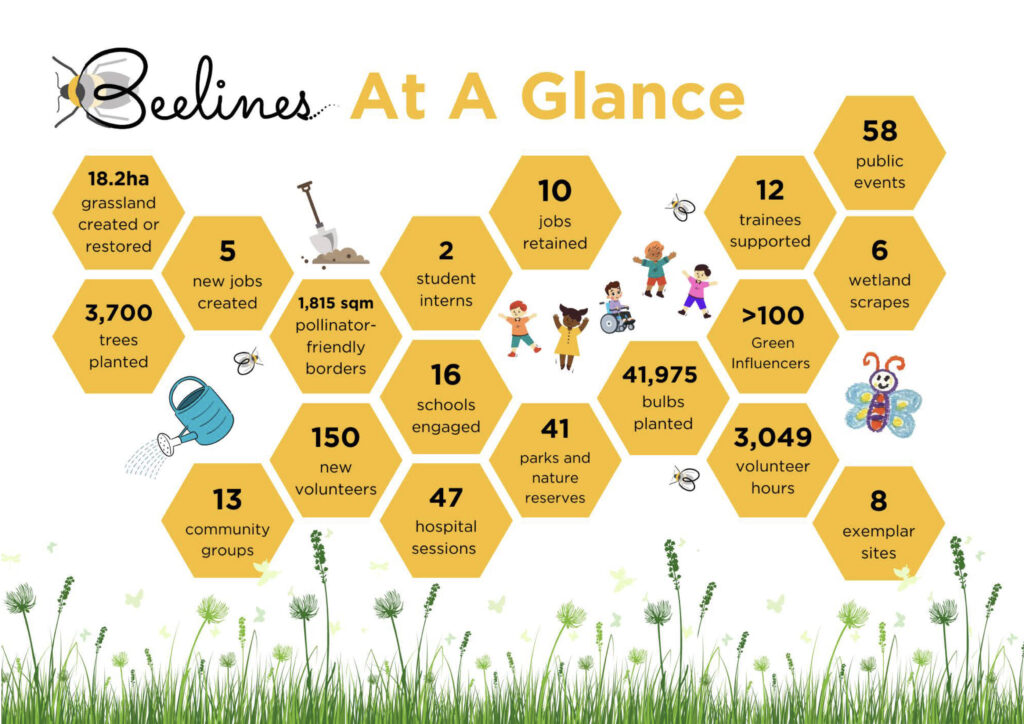
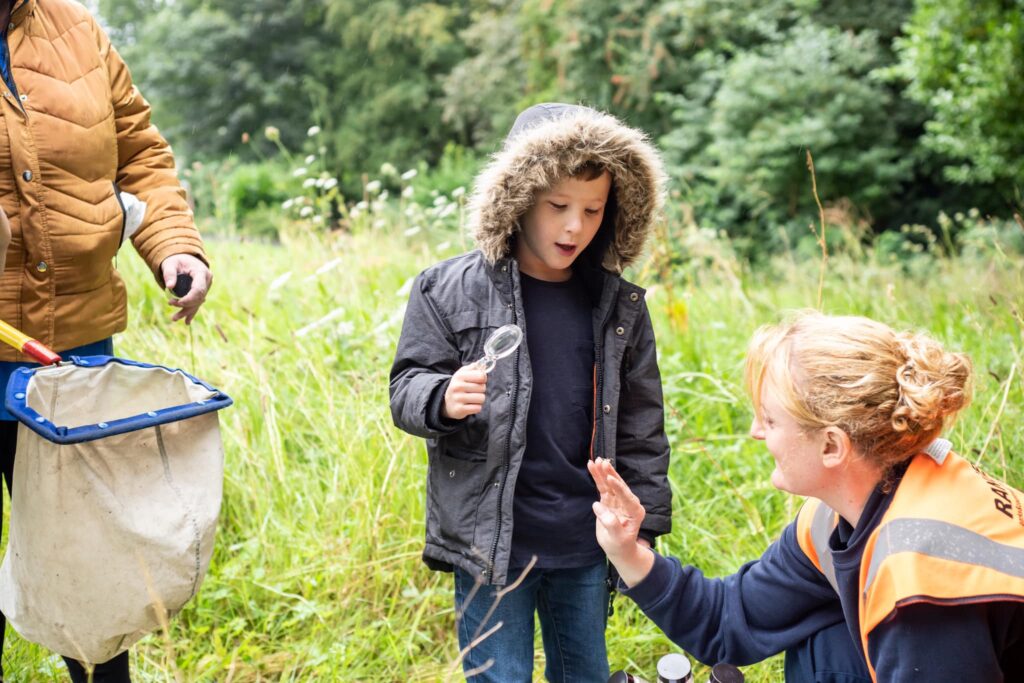
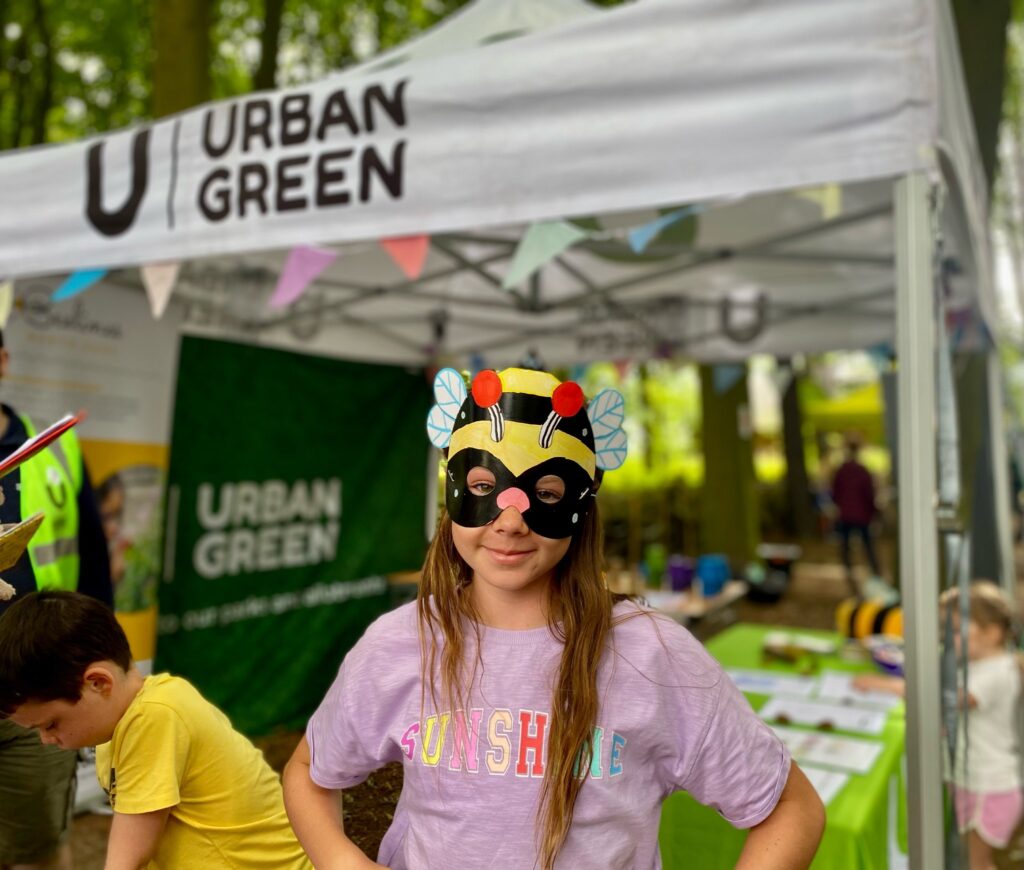
Newcastle’s Nature Networks
Built on the success of Beelines North East, Newcastle’s Nature Networks expanded the partnership to involve seven organisations across Newcastle – all working to improve pollinator pathways across the city. Led by Urban Green Newcastle, the initiative delivered over £900,000 investment for the city, including £701,417 from the Species Survival Fund – a partnership between Defra and the National Lottery Heritage Fund to support habitat creation and restoration projects across England.
Integral to the work was the opportunity for people to get involved through initiatives such as Citizen Science, which allowed members of the public to identify and record the wildlife they saw in the parks and allotments.
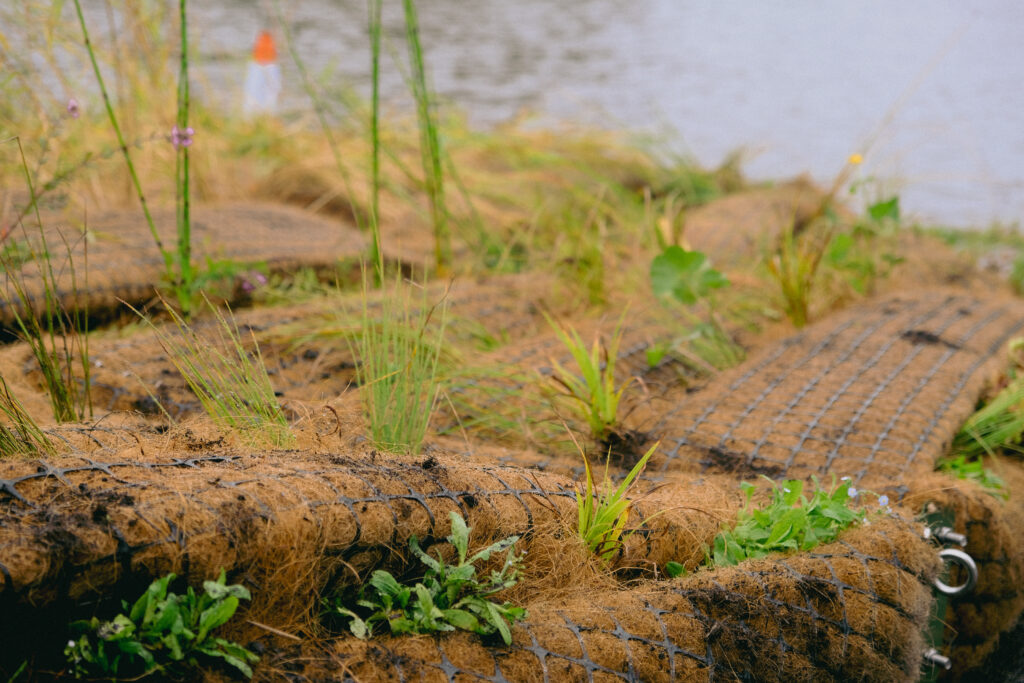
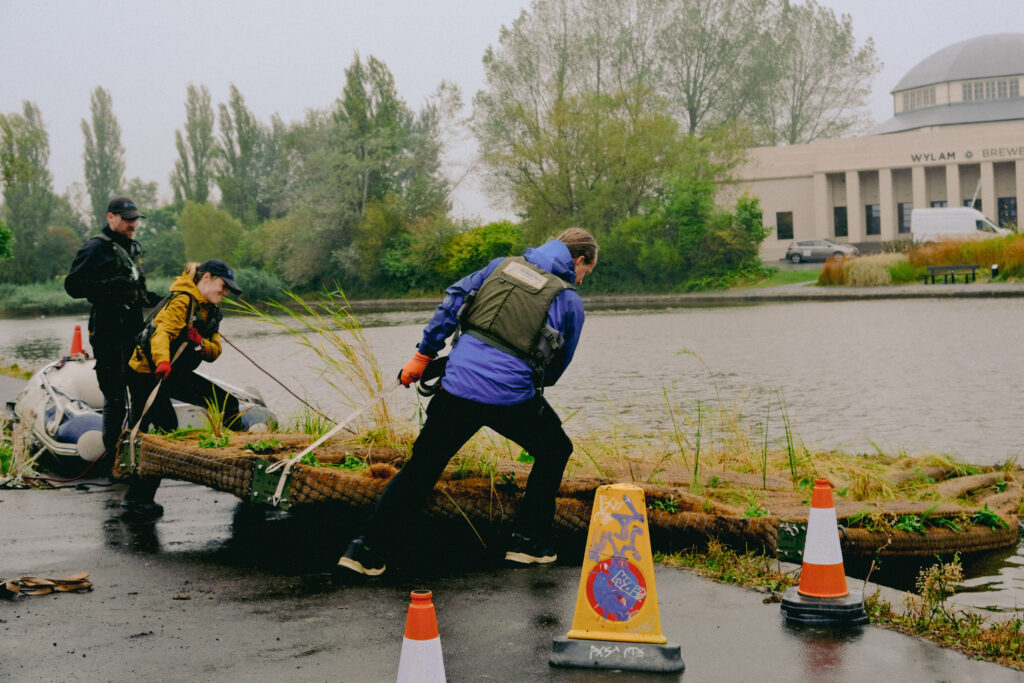
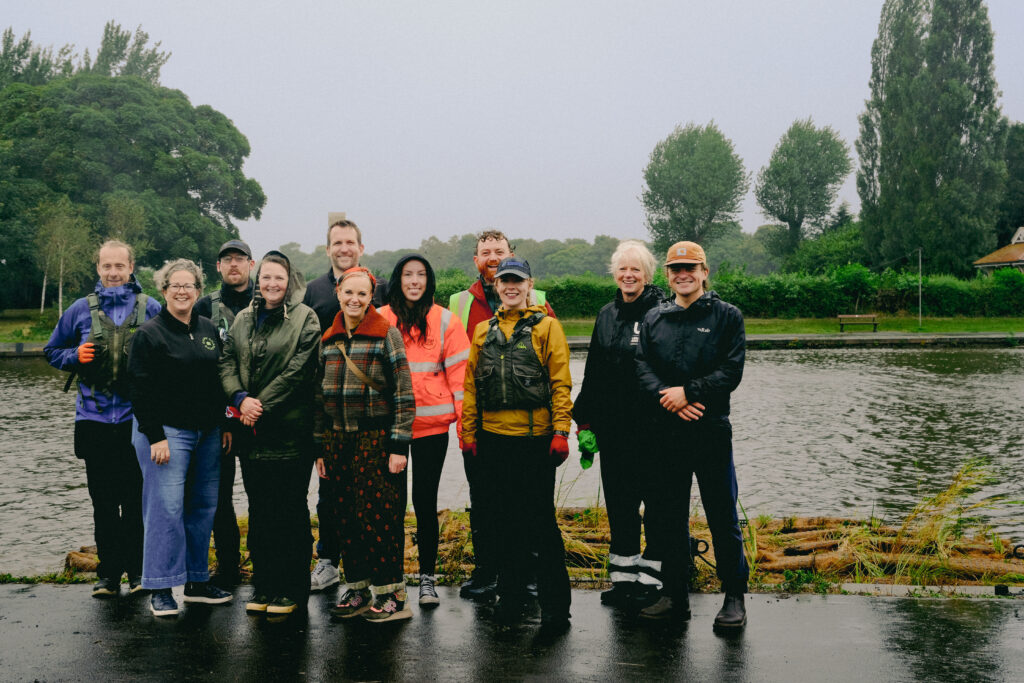
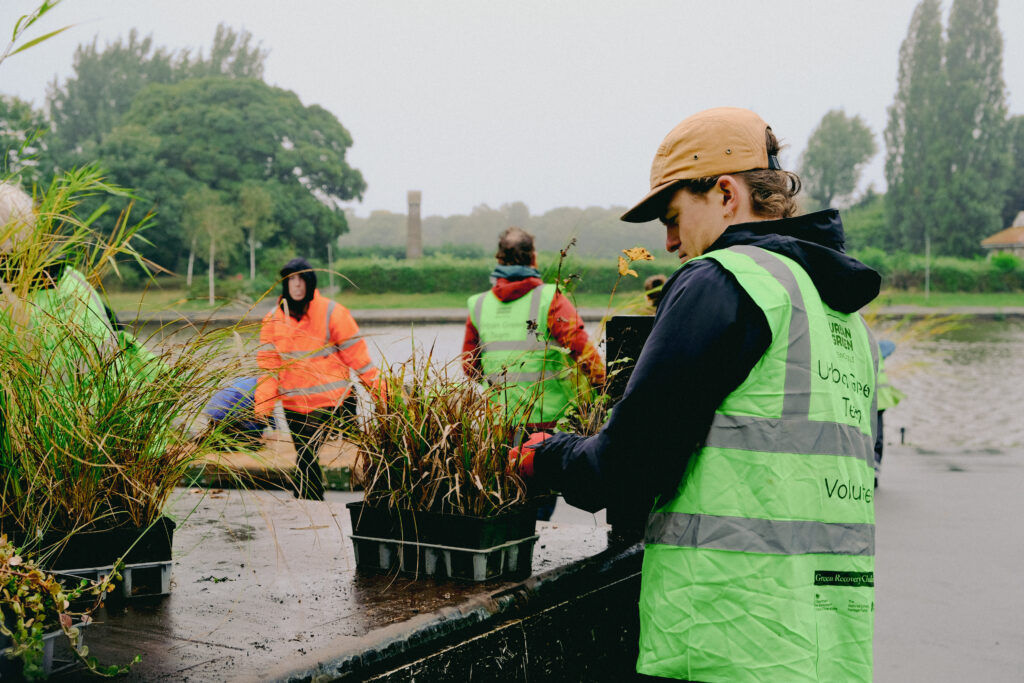
Nature Neighbourhoods
This initiative, led by WWF (World Wide Fund for Nature), the RSPB (Royal Society for the Protection of Birds) and the National Trust (along with funding from The National Lottery Heritage Fund and the Co-op) invited 18 charities and community organisations from across the country to create ‘people-powered’ plans for nature in their local area. Due to the levels of anti-social behaviour occurring in Walker Park, Urban Green Newcastle agreed with partner agencies to focus efforts on that area, working with local communities to increase levels of involvement and ownership in the park, and build towards more initiatives to tackle the nature and climate crises.
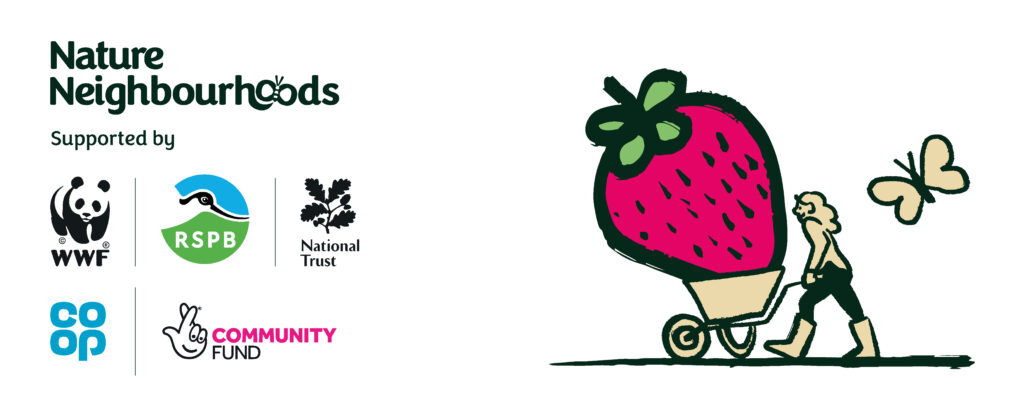
Let It Grow
Let It Grow was Urban Green Newcastle’s local campaign to support Plantlife’s annual No Mow May initiative. Newcastle’s parks contain many hectares of regularly mown grass, but there are many areas where it is possible to reduce mowing to allow grass to grow longer, creating a diversity of spaces for people to enjoy while benefitting wildlife.
Urban Green Newcastle worked with mowing contractors and local communities (including Friends of Groups) to improve and diversify the mowing regimes in the city’s public parks. Students from Northumbria University carried out research to help engage local people and raise awareness of the benefits of the initiative, and the community engagement panel, Urban Green Connect, provided advice and input. During the Beelines North East project, Let It Grow was featured on BBC’s Springwatch programme.
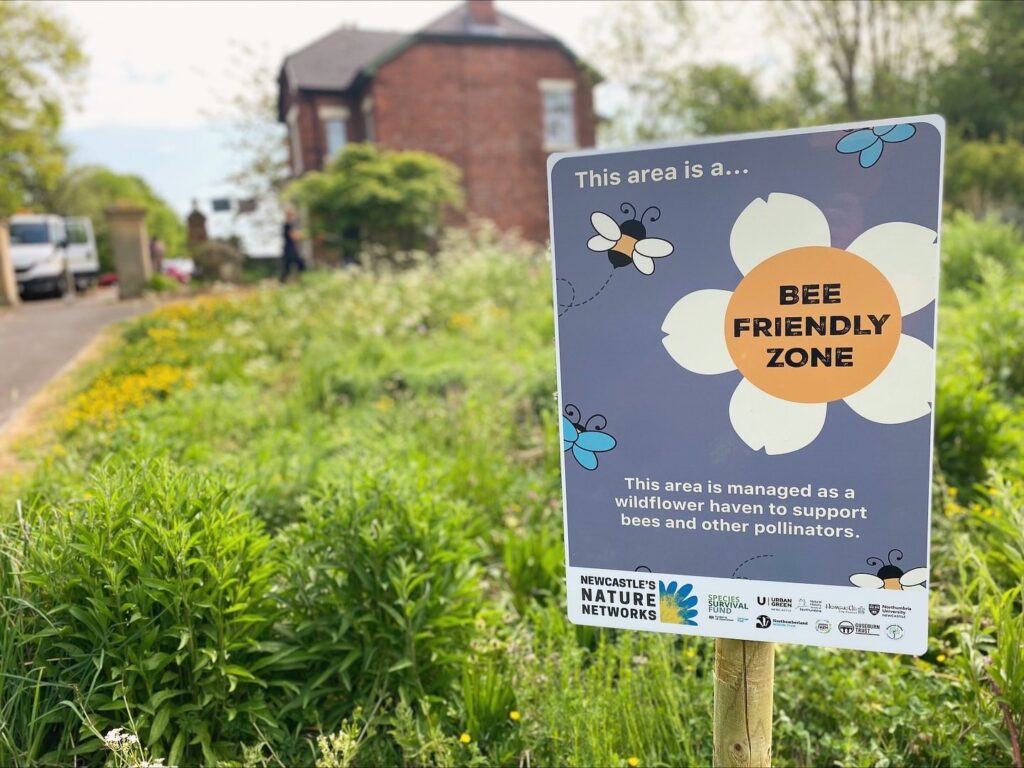
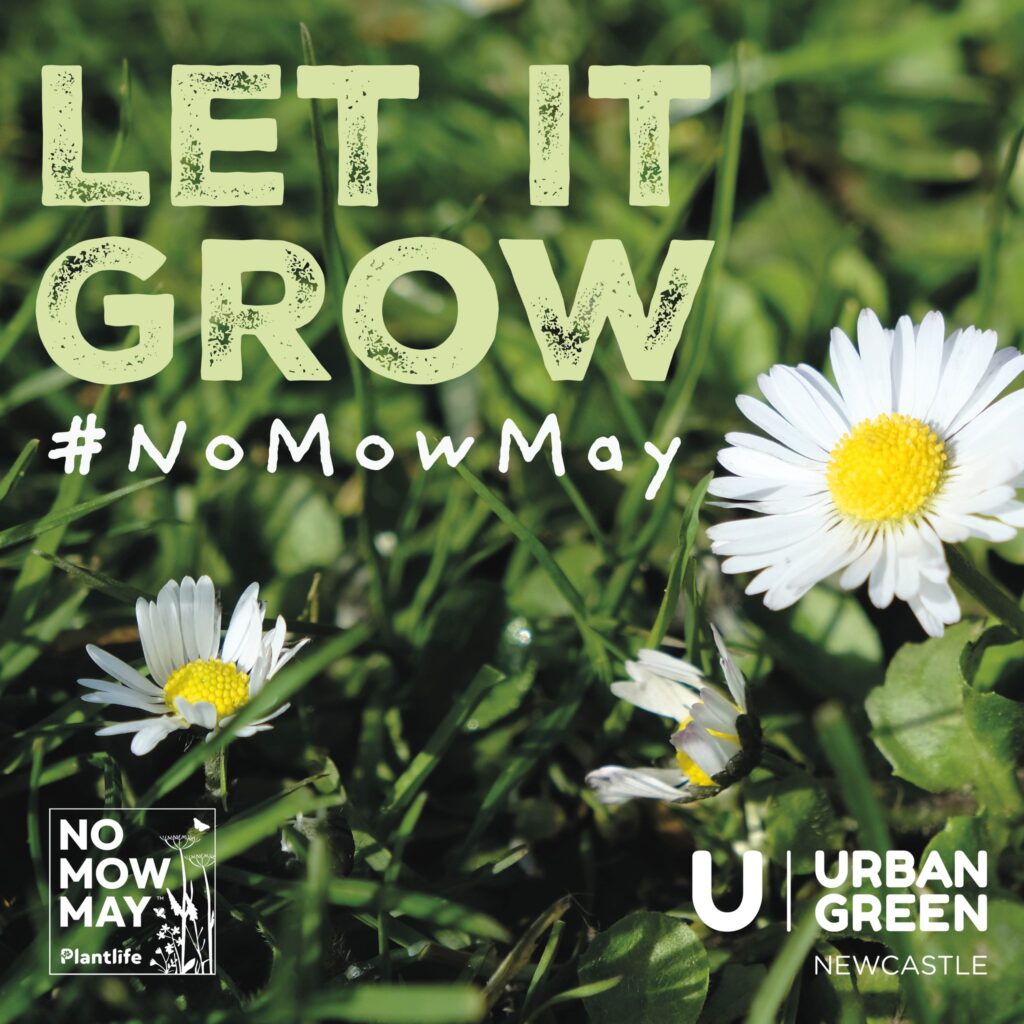
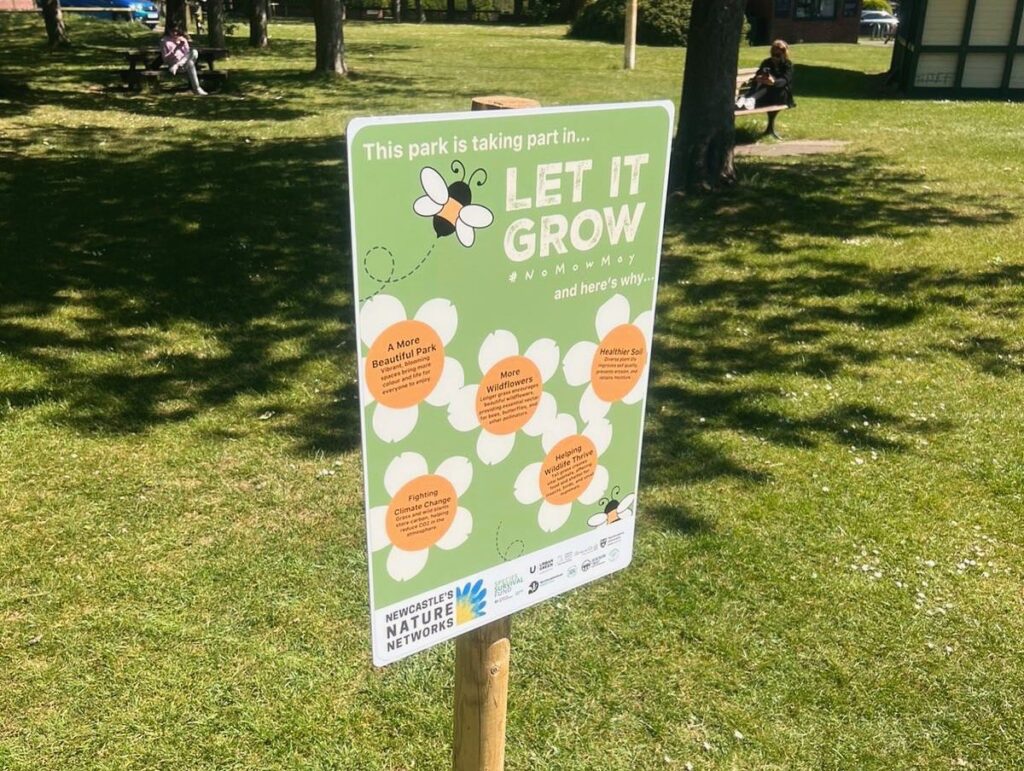
Biodiversity net gain (BNG)
Urban Green Newcastle recognised biodiversity net gain (BNG) could provide significant new income streams for the charity. It entered into the city’s first planning obligation (Section 106 agreement) to deliver offsite BNG and in 2021, was awarded funding from the Natural Environment Investment Readiness Fund, and with support from the National Trust was able to advance its work on BNG. A number of assessments were completed, and prior to the charity’s closure in early 2025, Urban Green Newcastle was in discussion with a number of developers to deliver their offsite BNG. This would have generated significant amounts of revenue to improve council-owned green spaces for wildlife. With the closure of Urban Green Newcastle, the Council will need to explore new ways of channelling BNG funding onto its own sites.
Nature reserves and countryside sites
Newcastle has a number of sites that are either designated as nature reserves, or have extensive countryside areas. Urban Green Newcastle was committed to improving their management to enhance wildlife populations. The charity commissioned Phase 1 habitat surveys for all the sites it managed, as well as more detailed biodiversity metrics and recommendations for future management in three of its larger sites. A more detailed Conservation Management Plan for Havannah Local Nature Reserve informed how it could better cope with the increased pressure from nearby housing developments.
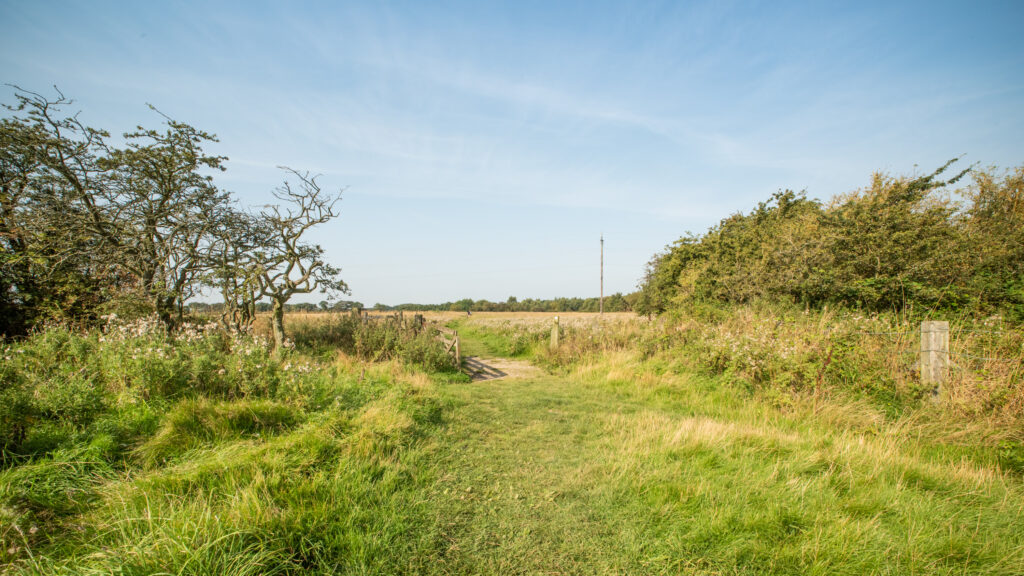
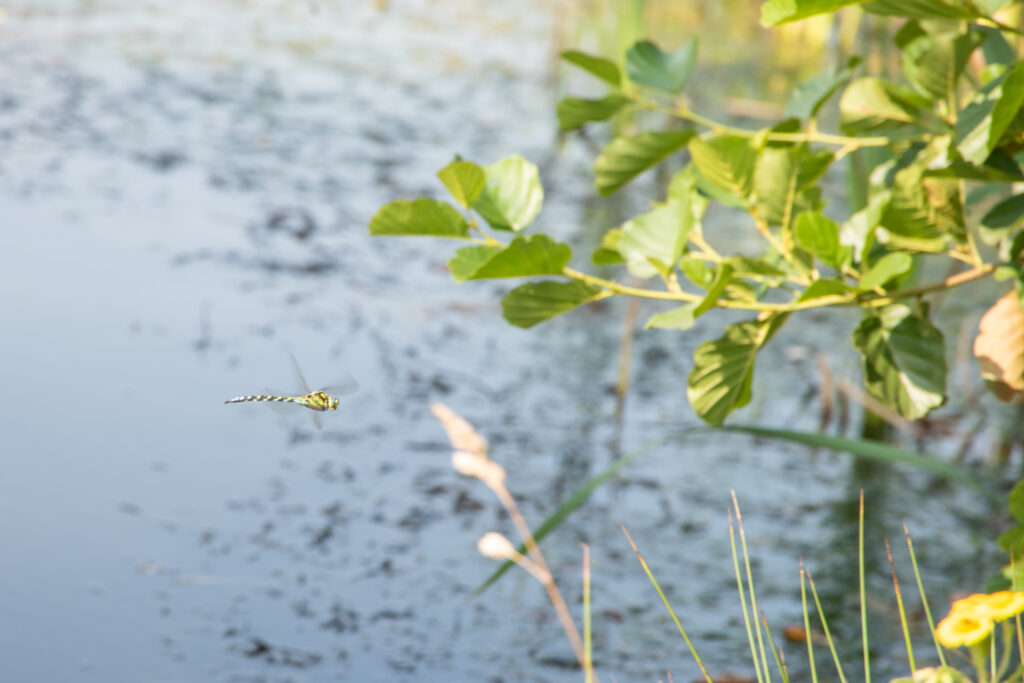
Working with rural land agents and ecologists, Urban Green Newcastle was successful in registering all of its sites with the Rural Payments Agency. This allowed the first Countryside Stewardship payments to be procured for the city, with the intention of following up with Woodland Management Plan grants for improvement works to these important semi-natural woodland sites.


